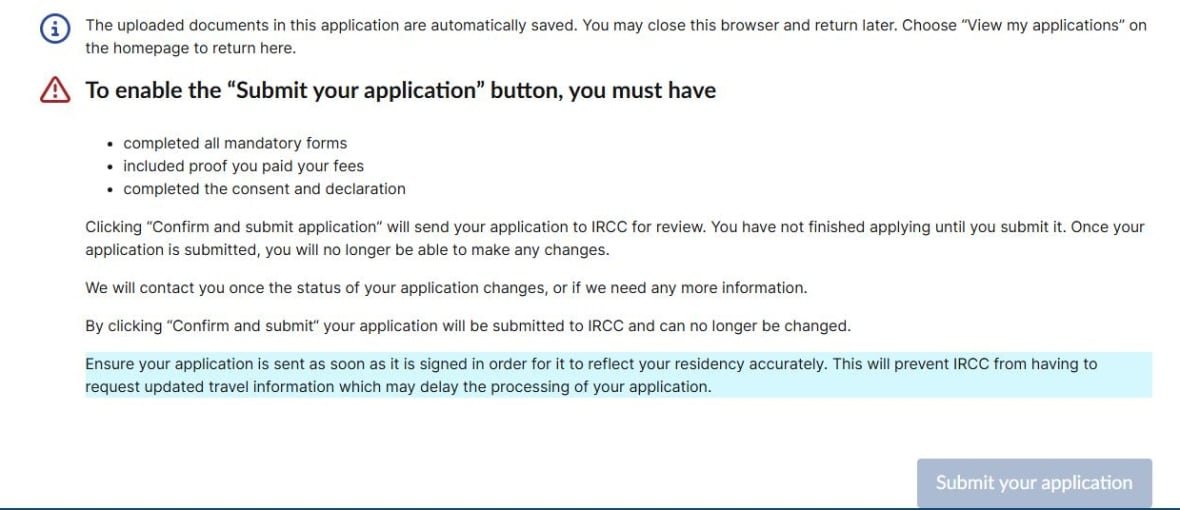UPDATE | Immigration, Refugees and Citizenship Canada has submitted the application for Helen Bobat’s permanent resident travel document on her behalf and approved it. She is now looking for a flight back to Canada.
By the time Helen Bobat was hospitalized on the weekend, she had been stranded abroad without her medication for more than a week.
The Ottawa resident planned to be in England for five days in mid-March to make arrangements for her ailing mother, bringing along eight days worth of drugs to manage her diabetes and auto-immune disease.
But when her wallet was stolen, Bobat’s trip was extended indefinitely.
“I panicked because everything is in there,” she said. “My credit card, travellers’ cheques to pay the legal fees for mom’s lasting powers of attorney, and, of course, social insurance card, health card, driver’s licence and my PR card.”
Since Bobat settled in Canada over two decades ago, she’s built a career and raised a family as a permanent resident (PR).
Her specialty is in communications and crisis management, but that couldn’t prepare her for this personal calamity.
Bobat can’t travel back to Canada without a PR card, and she must be in Canada to apply for a replacement. The only other option is attaining what’s known as a “permanent resident travel document” to go in her British passport.
Clearing the technical hurdles through the government’s online portal to obtain one has so far proven impossible.
‘I’m stuck’
Bobat first looked for help to return home from the High Commission of Canada in London. She was turned away because she’s a permanent resident, not a Canadian citizen.
“I’m stuck,” she said. “I don’t know how to get home. And Canada is my home. It’s been my home for 25 years. I have worked, paid taxes, supported the economy.”
She turned to Immigration, Refugees and Citizenship Canada (IRCC) but was unable to have a conversation with a real person.
Their call centre can only be reached from Canada and is separate from their technical support desk.
Tech problems common
In order to get the documents she needs to travel, Bobat has had to use IRCC’s portal for permanent residents.
That requires filling out an online form that she can’t get to work.
Applicants use government portals to upload documents and photos, as well as personal information that IRCC needs to assess eligibility.
In Bobat’s case, she’s uploaded copies of identification, past addresses, tax statements, a British police report, and letters explaining how the situation is urgent, especially given that she’d long run out of glucose monitoring equipment and has no access to insulin or her other medication.
But the application’s grey ‘submit’ button has so far stubbornly refused to change colour.
“I deleted everything and redid everything, made sure that all the dates were correct, that the names were correct,” she said, going through a long list of troubleshooting. “I continue to do this. I’ve tried to submit that application maybe 19 or 20 times.”

Her adult children have tried to do the same from Canada and had no luck.
After CBC asked the government department to comment on Bobat’s case, she received a call from an agent on Tuesday.
For more than two hours, they attempted to solve the problem. But even IRCC’s tech department appears to be stumped.
“She could not fix it because everything I’ve done is right,” Bobat said.
Bobat was left without a solution and said she instead received a promise that the problem will be solved on the IRCC’s end.
On Tuesday evening, IRCC sent an emailed statement to CBC saying, “the portal is functioning as expected, with no known or reported issues that would have prevented a client from submitting their application.”
No way to identify error
These sorts of technical issues don’t surprise Ronalee Carey, an immigration lawyer based in Ottawa.
“Frustration is often the ongoing emotion that people are experiencing while they’re using these portals,” she said.

IRCC’s online submission systems were introduced during the pandemic.
Carey called the current process a “stop-gap” which wasn’t able to go through enough beta testing, but she said the IRCC plans to replace it.
For now, immigration lawyers share issues among themselves — finding, for instance, that some of IRCC’s systems require dates provided for past addresses to overlap and some do not.
Another technical problem saw an application blocked until the hyphens were removed from a phone number.
At one point, Carey said, unclicking a box to indicate the application is urgent would fix this sort of issue, though she’s unsure if that particular bug has been resolved.
Permanent residents who encounter roadblocks are pointed to a courier that can be hired to deliver paper documents, but according to the company’s website it no longer provides that service for this type of application.
Head to U.S., lawyer recommends
When her scheduled flight was set to depart on March 20, Bobat said the airline wouldn’t let her board. If it had, Carey said Canada could have issued a fine for letting through a passenger without proper clearance.
The immigration lawyer said there is another option, though.
A permanent resident can bypass the need for this travel document by crossing the U.S. border into Canada in a private car.
Provided you can get an American visa — which Bobat easily acquired online — Carey said there shouldn’t be any issue.
But Bobat hasn’t gone that route.
She’s worried the system will fail her again and leave her stranded in yet another country.
Without her stolen credit and banking cards, Bobat said life has been difficult. She feels fortunate that she’s been able to rent a room at her mother’s retirement home for just $75 per day, but she said other costs, including for international phone calls, are piling up.
After trying for weeks to get more medication, she was relieved to be discharged from the hospital with a month’s supply.
“I’m also really struggling to not be with my family. Easter’s coming up. It’s a time for celebration. It’s a time for family,” Bobat said. “I’m going to be stuck here. Yes, with my mom whom I love, but I want to go home. I really want to go home.”
Carey had another suggestion for anyone looking to avoid a similar travel nightmare.
“If you have the ability to gain Canadian citizenship, go ahead and do it.”

